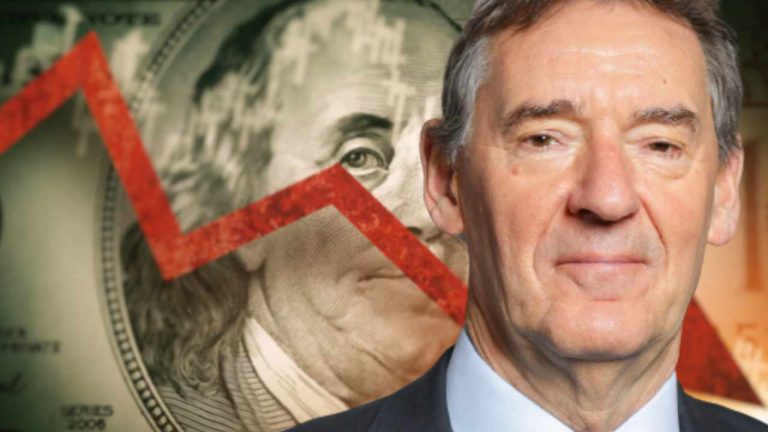
Lord Jim O’Neill, the British economist credited with coining the acronym BRIC, has explained that the U.S. dollar will lose its dominant status. He expects the Chinese yuan and possibly the Indian rupee to become “much more important currencies for the world.”
Lord Jim O’Neill on USD Losing Its Dominant Status
British economist Lord Jim O’Neill discussed de-dollarization and the potential for a proposed common BRICS currency or the Chinese yuan to replace the U.S. dollar as the world’s reserve currency in a couple of interviews this week. O’Neill, a former Goldman Sachs economist, coined the acronym BRIC over 20 years ago to describe the economic potential of Brazil, Russia, India, and China. South Africa joined the group a few years later, and the acronym was changed to BRICS. O’Neill is now the chair of venture capital firm Northern Gritstone.
He believes that the U.S. dollar will lose its world’s reserve currency status at some point, stating in an interview with Going Underground on Wednesday:
The idea that the dollar will remain king forever, I think, is probably unlikely … At some point the dollar will lose its dominant status.
However, he does not expect the proposed common BRICS currency to replace the U.S. dollar as the world’s dominant currency. In an interview with IC Intelligence chief economist Dr. Desné Masie, published Thursday, he described the idea of a single currency for the BRICS nations as “ridiculous” and “amusing.” He emphasized that “China and India never agree on anything,” noting that the two countries “can’t even really agree on basic things like a peaceful border.”
The former Goldman Sachs economist opined:
What is more feasible, and more likely, is at some point in the future, the RMB [renminbi], and possibly the rupee are going to be much more important currencies for the world.
Moreover, he detailed: “I do think if China and India could ever strongly agree on things as the two biggest countries in the emerging world … then that would probably hasten the end of the dollar’s dominance.”
Regarding whether the Chinese yuan will replace the U.S. dollar as the world’s dominant currency, O’Neill noted: “If you are no longer the biggest economy in the world, your currency stops being the most important. So if China ends up being a lot bigger than the U.S., then probably, the dollar won’t be what it is today. But that’s the reality of life.”
However, the economist outlined several challenges that the Chinese yuan would have to overcome in order to replace the U.S. dollar as “the preferred global currency.” He explained: “You’ve got to allow and encourage people anywhere in the world to hold their wealth with confidence in your currency, and not having any fear that something might happen that they don’t expect. You’ve got to have some significant degree of transparency as well as liquidity. And I’m not sure the CCP is in the position to do that.”
The BRICS nations have been ramping up their de-dollarization efforts, pushing for the use of national currencies in trade settlements. A proposal for a common BRICS currency is expected to be discussed at the economic bloc’s upcoming leaders’ summit. Many believe that a successful BRICS currency will erode the U.S. dollar’s dominance, including former White House economist Joseph Sullivan.
Regarding whether the BRICS will eventually rival the Group of Seven (G7) on the global stage, O’Neill said:
Economically, it already is … Last year’s GDP data shows that collectively they are now, in PPP terms, already bigger than the G7.
“By the end of this decade, China is going to be pretty close to the size of the U.S. while India is going to be close to overtaking Germany. So two of the biggest four economies in the world are two of the BRICS,” he detailed.
Do you agree with Lord Jim O’Neill? Let us know in the comments section below.